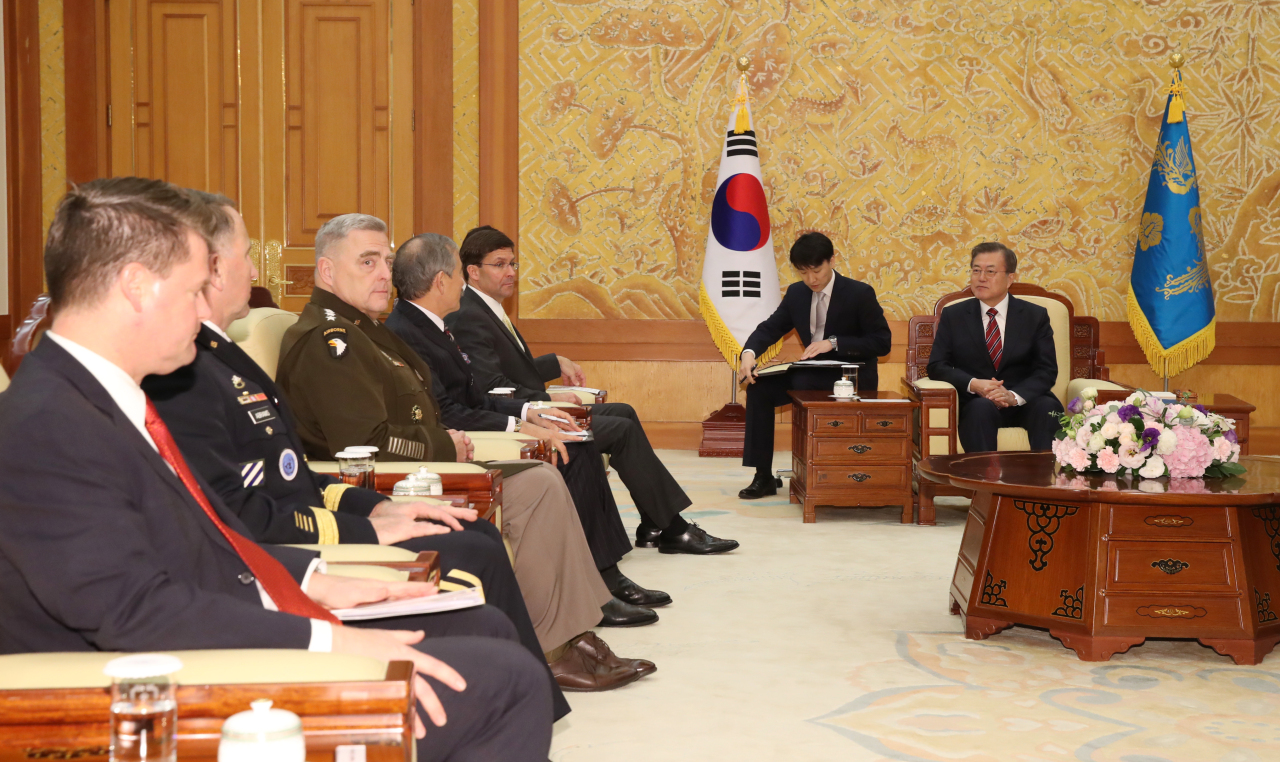The diplomatic spat between South Korea and Japan appears likely to continue, with the two sides reiterating their positions six days before their military information-sharing pact expires.

On Sunday, Japanese media reported that Tokyo has decided it will not retract trade measures applied to South Korea. According to Yomiuri Shimbun, the Japanese government has arrived at the decision and has informed the US.
The paper said the decision was based on the results of talks between foreign affairs authorities of Korea and Japan, and talks between Seoul and Washington.
Korean and Japanese foreign affairs officials met in Tokyo on Friday, while a number of US defense officials including Secretary of Defense Mark Esper were in Seoul last week for talks with their counterparts.
Seoul has decided to end the General Security of Military Information Agreement in response to Tokyo’s trade-curbing measures. Unless the two sides renew the agreement, GSOMIA will expire at midnight on Saturday.
Faced with criticism from the country’s conservatives and pressure from the US to maintain the agreement, Seoul has stated on several occasions that the decision would not be revoked without changes from Japan.
Seoul has viewed Japan’s trade restrictions -- removing Korea from a list of trusted trading partners and applying tougher regulations on exports of key semiconductor-related materials -- as retaliation for the Korean Supreme Court’s ruling on forced labor issues.
The Supreme Court ruled that Japanese firms must compensate Koreans who were forced into working for them during Japan’s 1910-1945 occupation of the peninsula. Japan, however, maintains that all related issues were resolved through the 1965 treaty that normalized bilateral relations.
Japan has also defended its moves on the semiconductor-related materials, citing security reasons. It said that South Korea has failed to prevent materials that can be used for weapons programs from being diverted to North Korea.
Meanwhile, South Korea has made it clear that it will not renew GSOMIA without changes in Japan’s stance, with President Moon Jae-in reiterating the position at a meeting with Esper on Friday.
“President Moon explained Korea’s position that it is difficult to share military information with Japan, which took trade measures reasoning that (Seoul) can’t be trusted for security reasons,” Cheong Wa Dae spokesperson Ko Min-jung said Friday.
Moon, however, left open the door to military cooperation with Japan, saying his administration will put “continuous effort” into security cooperation among Seoul, Tokyo and Washington.
By Choi He-suk (cheesuk@heraldcorp.com)



![[AtoZ into Korean mind] Humor in Korea: Navigating the line between what's funny and not](http://res.heraldm.com/phpwas/restmb_idxmake.php?idx=644&simg=/content/image/2024/04/22/20240422050642_0.jpg&u=)
![[Exclusive] Korean military set to ban iPhones over 'security' concerns](http://res.heraldm.com/phpwas/restmb_idxmake.php?idx=644&simg=/content/image/2024/04/23/20240423050599_0.jpg&u=20240423183955)


![[Graphic News] 77% of young Koreans still financially dependent](http://res.heraldm.com/phpwas/restmb_idxmake.php?idx=644&simg=/content/image/2024/04/22/20240422050762_0.gif&u=)

![[Herald Interview] Why Toss invited hackers to penetrate its system](http://res.heraldm.com/phpwas/restmb_idxmake.php?idx=644&simg=/content/image/2024/04/22/20240422050569_0.jpg&u=20240422150649)






![[Exclusive] Korean military to ban iPhones over security issues](http://res.heraldm.com/phpwas/restmb_idxmake.php?idx=652&simg=/content/image/2024/04/23/20240423050599_0.jpg&u=20240423183955)



![[Today’s K-pop] Ateez confirms US tour details](http://res.heraldm.com/phpwas/restmb_idxmake.php?idx=642&simg=/content/image/2024/04/23/20240423050700_0.jpg&u=)